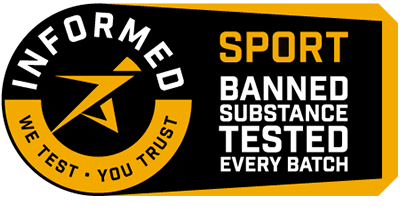Beating Corona with Supplements: fair or fake ?

Since early 2020 the world is in the grip of a global pandemic caused by the COVID-19 virus. By today (September 2020) about 30 million ‘official’ cases have been reported, including nearly 1 million deaths. The urge to find potent strategies to prevent and treat the disease is very high. Hence research aiming at developing an efficacious vaccine has exploded, and in parallel a large number of clinical trials are exploring potential novel therapeutical interventions.
Interestingly, the COVID pandemic has once again highlighted that good health and fitness status obtained by regular exercise, together with a well-balanced and healthy diet, are important factors in maintenance of immunity. Against this background, unfortunately an increasing number of nutritional supplements is now being claimed to stimulate immunity, and are promoted to protect against COVID-19.
But can nutritional adaptations or intake of nutritional supplements really boost immunity and thereby possibly protect against COVID-19?
The quality of the daily diet, indeed, plays an important role in modulation of the immune system.
First, micronutrients including vitamins (A, D, C, E, B6, and B12, folate) and minerals (zinc, iron, copper, selenium) are implicated in different stages of the immune defense. Whenever malnutrition, or intentional hypocaloric diet with the express purpose to rapidly lose body weight, or pathological conditions cause micronutrient deficiencies, immunity is impaired. In such specific case a tailored supplementation program is needed as an adjuvant therapy to correct for the ongoing dietary deficiencies, and thereby contribute to repair immune function.
Second, it is also well established that gut bacteria and organisms, the so-called ‘microbiome’, plays a significant role in regulation of immune status. In addition, dietary changes can rapidly impact the structure and metabolism of the microbiota, as well as alter microbiome gene expression. Such change in the microbiome system may or may not alter immune function. Furthermore, evidence is increasing to indicate that ingestion of so-called ‘probiotics’ to manipulate the composition of intestinal microbiota, may contribute to disease prevention and health maintenance.
Clearly, nutrition is important in immunoregulation.
But can dietary supplement intake in the form of micronutrients or probiotics in healthy and physically active individuals or athletes protect against COVID-19?
The message with regard to so-called ‘immunoboosting’ formulations containing vitamins, minerals, antioxidants, phytochemicals, or fibers, alone or in whatever combination, is probably simple: if you are healthy already, these supplements will probably not help to make you even healthier, or boost your immune defense against upper respiratory tract infections or flu, not to talk about corona viruses. Claims on supplements stating to contribute to protect against COVID-19 are not evidence-based. In fact it is still a matter of debate whether micronutrient supplementation above the RDA (recommended daily allowance) may be useful in supporting immune function. Awaiting further evidence it is probably reasonable to state that the ingestion of micronutrient supplements with the specific aim to boost the immune system in healthy recreational or elite athletes, conceivably is a waste of money.
With regard to probiotics. It is still a matter of debate whether or not intake of probiotics can stimulate the immune response to viruses and bacteria. There is some evidence that consistent long-term treatment with probiotics, especially Lactobacillus or Bifidobacterium, and in doses delivering at least 1010 living bacteria may slightly reduce the incidence of classical upper respiratory tract infections. Evidence that probiotics, in whatever combination of bacteria, administration form, or dose, could protect against COVID-19 is obviously totally absent.
In summary, any claim to indicate that nutritional supplement intake may contribute to upregulate the immune defense to a degree that it could contribute to prevent contamination by a corona virus is not evidence-base.
Take home message
- A healthy lifestyle including adherence to a well-balanced healthy diet with high-quality food consumption, regular physical exercise, no smoking, and moderate alcohol intake, is a cornerstone in maintenance of immunity.
- Consistent inadequate diet in conjunction with strenuous training may increase risk of infection by causing micronutrient deficiencies and downregulation of immunity.
- There is insufficient scientific evidence to indicate that micronutrient supplementation above recommended daily allowance, or probiotics use, may significantly upregulate immunity in healthy active individuals.
- Claims to indicate that ‘immuno-boosting’ nutritional supplements can protect against COVID-19 are not evidence-based.


